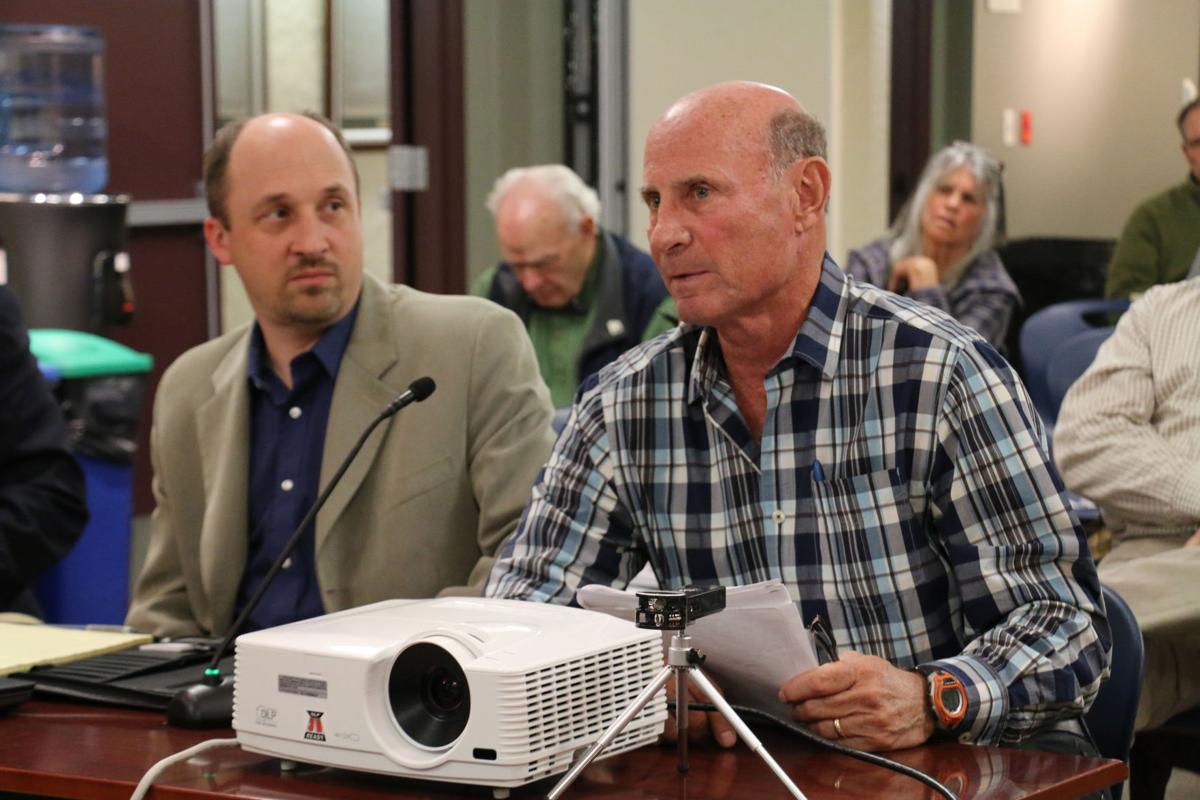A deal to create a 150-room hotel and resort adjacent to the Sand Flats Recreation Area and avoid public hearings was rejected by the Utah Court of Appeals, which ruled that the City of Moab violated its own laws.
“Cities may not take action that is ‘repugnant to law,’” reads the Jan. 25 Utah Court of Appeals verdict, concluding that an agreement entered into by the City of Moab, state officials and developers working on the Lionsback Resort violated both Utah State law and Moab municipal code. Read the full ruling here.
A citizen-led lawsuit challenged the agreement, which provided that the City would consider significant changes to the approved plan for the resort as “minor.” This classification would allow the plan to avoid a series of public hearings that would be required for “major” changes. The deal was approved by the Moab City Council in 2017.
[Editor’s note: Moab Sun News Co-Publisher Heila Ershadi was on the City Council at the time and voted for the agreement. She did not participate in reporting on this story.]
The proposed Lionsback Resort has been in the works for over a decade, with initial plans submitted to the City in 2007. The project has been delayed for years due to the economic downturn and a previous lawsuit that was dismissed in favor of the project in 2012.
After the resolution of that suit, plans for the project were revised, increasing the number of hotel rooms from 50 to 150, adding additional parking and other alterations. The overall open space included in the project would remain unchanged. Moab’s legal counsel at the time, Chris McAnany, wrote in a letter dated Sept. 12, 2016, that he considered the proposed changes to be major. In the letter, McAnany concluded that “although a minor change might appear to be expedient, in my opinion that would run contrary to the Moab ordinance.” Read the full letter here.
“Under its interpretation of its own ordinances, the City had already determined that Developer’s modifications were major changes that warranted a public hearing,” the court’s verdict read, thus “the City also deprived Citizens of public hearings” required by State law and Moab’s own municipal code.
The resort’s proposed location on 175 acres of land at the entrance to the Sand Flats Recreation Area was previously the site of a campsite. The land is owned by the School and Institutional Trust Lands Administration, which was created by the Utah State Legislature in 1994 to manage 3.4 million acres of trust land to generate revenue for the state’s educational system.
In order to facilitate access to sewer, roads and other infrastructure, the property was annexed to the City and is thus governed by Moab planning and zoning ordinances.
According to documentation of communications with the City, the group spent years attempting to persuade city officials to consider these changes as “minor,” which would skirt public hearings and only require staff approval.
In 2016, the City, SITLA and the development firm LB Moab Land Company, LLC, drafted a zoning status agreement in which the City agreed to consider the plan changes as minor in exchange for remaining under Moab’s jurisdiction and other concessions. The developer for the project is now Invent Development Partners. Both development firms are represented by Michael Badger.
The agreement was adopted by the City Council in Feb. 2017 and was challenged in court shortly thereafter by a citizens group consisting of Lucy Wallingford, Kiley Miller, John Rzeczycki, Carol Mayer, David Bodner, Meeche Bodner, Sarah Stock, Josephine Kovash and Living Rivers, a Moab-based environmental organization.
The group’s legal challenge alleged that Moab city officials classified the changes as minor “in order to appease SITLA and LB Moab, but not based on an actual review of whether the amendments were in fact ‘minor changes’ or based on substantial evidence.”
The challenge further pointed out that such actions deprive the public of “the right to participate in public hearings on the changes, a right they are entitled to for any ‘major change’.”
The Court of Appeals agreed, stating in their ruling that while the City has the power to use “contract zoning” agreements, but “must hold a public hearing before it does so, and must allow members of the public, including Citizens, to be heard on the matter.”
“If the [agreement] is truly in the best interest of the residents of Moab, the City and Developer
theoretically should be able to persuade the Council to approve it, even after a public hearing,” the ruling concluded.
SITLA resistance to public meetings
Under Utah State law, the project could be withdrawn from Moab’s jurisdiction and developed outside of the city’s land-use approval process, an option that SITLA repeatedly said they might exercise when the planning process was interrupted.
In a recording of a Jan. 19, 2017 meeting of SITLA trustees, Assistant Director of Planning and Development Rodger Mitchell said “As you probably know, developing in Moab’s like pulling teeth.” At the meeting, which took place before the Moab City Council approved the agreement, SITLA Vice-Chairman Roger E. Barrus and Board Trustee Mike Mower appeared to propose withholding other funds for unrelated projects in the Moab area unless the Lionsback project was approved.
After other trustees expressed discomfort with that discussion, the other funds were approved with a statement saying expressing SITLA’s “hope that civic partners remain such and that we can work together on issues in Moab.”
Lionsback agreement facing legal challenge / Apr 6, 2017
Council splits 3-2 in favor of Lionsback agreement / Mar 2, 2017
City wants shelter from potential Lionsback lawsuits / Feb 16, 2017
SITLA board pondered “hardball” tactics in negotiations with city / Mar 23, 2017




